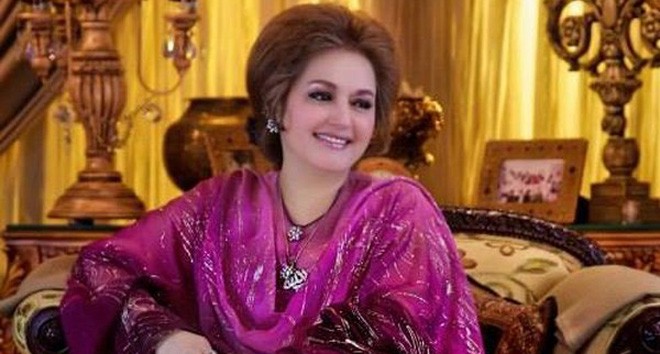

One was saddened by the news of of Zille Huma’s death and it may be difficult to say as to exactly why. The death of any human being is reason enough to be sad because it brings us the realisation and with renewed urgency that it is a journey to an "undiscovered country from whose bourn no traveller returns". It painfully refreshed the inevitability of the mortality of life but in her case above all it was the association of the daughter with the great mother, embedded in the fear that the musical line of Noor Jehan had come to an end.
It is very natural for humans to look for continuity of some sort, a physical trait, a gesture, a mannerism, a tone or shred of talent in the progeny that the parent excelled in. From the newly born to the adolescent, if not further on in life, these are usually traced in the children and sort of bolster up the confidence that there is one among them willing to take up the mantle or at least is readying for the task set out for him or her. It is like carrying the baton into the stretches of the future.
It is sad and perplexing too because Zille Huma was not much of a singer, she was not the one who had even aspired to fill in the musical boots of her mother. She did not develop her talent that she may have inherited from her mother’s side, sacrificing it to the usual chore of motherhood where bringing up children is considered to be the principal reason a for woman’s existence. And once she was through the toil of bringing up the boys, she may have thought of returning to her love thrice removed. But then she must have realised that the years had taken their toll and the vital energies had been exhausted in bringing forth the next generation.
When her mother died about 14 years ago, the spurt of interest among the people wanting to listen to the voice and songs of Noor Jehan pulled her out of her half resignation and pushed her on to the stage for singing her mother’s numbers. There was not much musical brilliance, perhaps only the overtones of songs that people were reminded of, but more so the whole package of mannerism and style. It was the entire package that was luring and not only the music of the mother by the daughter.
It was all about nostalgia and the fervent desire to not concede to the inevitability of death. The continuity of art was counter enough to control the decay and disintegration of death. There in front of the eyes was one example that defied the inevitable and rolled back the passage of time.
No other child of Noor Jehan even ventured close to music or the performing arts except her. Akbar Rizvi, the first born took up photography and Nazia the last born went into the visual arts. In our particular culture, perhaps in all cultures, the principle of inheritance is critical. It is one vital link of connecting the past to the present. In the age in which we live perhaps the principle of upholding inheritance is taken as an offense or an affirmation of the scale that determines superiority or inferiority among men and women. In an age bandying democratic equality, this fact of inheritance militates against it.
But all said and done when a known father or a mother passes away one tends to look for some salvaging virtue in the children of the deceased. Who will take over the mantle, is the young one fit enough or deserving enough to take on the pressures and the challenges that lie in store? This query may be innocently traditional but becomes more poignant when it relates to music. Traditionally the musicians or the art of music has run through the blood line and musical knowledge is retained and preserved by families. The niceties of the art are also kept as a closely guarded secret and the door of the treasure house is only unlocked for only those very deserving and from the family.
Noor Jehan was herself named after her aunt(father’s sister). She was Wasso to her aunt Hasso for the aunt happened to be the most outstanding vocalist in the family and had a 78 rpm record cut in the early years of the 20th century. Though Zille Huma was not much of a vocalist and surely no patch on the mother but her very presence did not let the torch of hope be extinguished. That there was still hope in the incarnation for a future Noor Jehan.
The death of Zille Huma has finally extinguished that flame for ever.